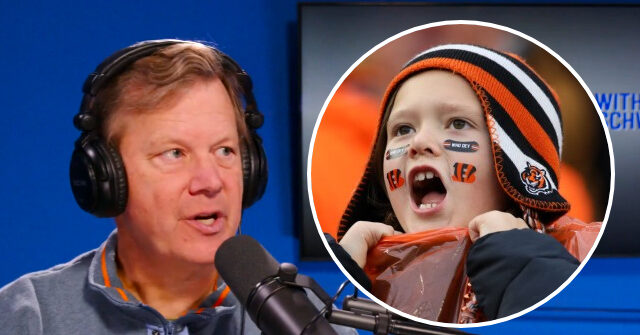Top News
Peter Schweizer: Are Companies Investing in Getting Your Kids Addicted to Gambling?

Former House Speaker John Boehner is one of the politicians who infamously cashed in after leaving office. In Boehner’s case, he opposed all efforts to legalize cannabis while he was in Congress, then promptly went into business as a pro-marijuana lobbyist, earning millions pushing for legalized pot around the country.
So, fresh off spending the holidays watching sports and all the commercial tie-ins for legalized sports betting, Peter Schweizer and Eric Eggers open the first episode of The Drill Down for 2024 by asking, “Who is the ‘John Boehner’ of legalized sports betting?”
Turns out it’s… John Boehner.
Boehner and the late Sen. Harry Reid were the co-chairmen of something called the “MGM Resorts Public Policy Institute” that is part of the U. of Nevada Las Vegas. MGM Resorts, of course, runs casinos in Sin City and has gotten deeply involved in online sports betting apps. The institute’s website features no events and only one publication, from 2019, but the first name on its advisory board is Valerie Biden Owens, who is President Joe Biden’s sister.
They are not alone. Former Texas governor Rick Perry is a big supporter as the spokesman for the “Texas Sports Betting Alliance.” So is presidential contender and former New Jersey Gov. Chris Christie, called “the George Washington of legalized Gaming” by a former lobbying colleague from Draft Kings. Both have been vocal advocates for sports gambling since the Supreme Court in 2018 struck down a law that prohibited it. Since then, 37 states have legalized sports gambling, and online sports gambling is now everywhere in professional sports.
Peter notes that even Disney, which once opposed casinos in Florida because they would have tarnished the family-friendly environment they wanted for Disney World, is now getting into the act. Its media property ESPN just announced its own sports betting app.
The problem, of course, is that gambling is addictive. And gambling addiction is becoming a problem with ready access to sports betting platforms.
Dopamine is the strongest addiction component of smoking, drugs, and alcohol, according to psychologist James Whelan of the University of Memphis. “And when you gamble, your brain secretes more dopamine than when you do any of those other things,” he said.
Regulations in this area matter because of the addictive nature of gambling, Peter says. That’s why sports betting apps offer lots of “first bet free” come-ons to hook the new bettor. “The people who should be paying attention to this are not, and that’s because they’re getting paid.”
The target audience for sports betting is young people. A survey of 3,527 Americans between ages 18 and 22—mostly college students—released in April by the National College Athletic Association, shows that nearly 60% have bet on sports, and 4% do so daily. Almost 6% reported losing more than $500 in a single day.
The population group most at risk? Young black males have the highest rates of gambling disorders in the United States. Studies have shown that black people with lower general health measures living in disadvantaged neighborhoods with the lowest income brackets are the most likely to be affected by gambling.
As Eric points out, state governments have gotten behind sports betting because it generates revenues. They have their “piece of the action.” And the sports leagues themselves are active promoters, because they get their cut in the form of “integrity fees” of up to 1% on every bet placed on their games.
One congressman is alarmed by the billions in advertising for sports betting that are targeted at young people. Early last year, liberal Democrat Paul Tonko (D-NY) introduced a bill to ban what he calls predatory sports betting advertising. He has yet to find a single member to co-sponsor the bill.
For more from Peter Schweizer, subscribe to The DrillDown podcast.
Read the full article here


















